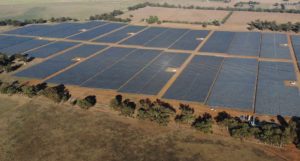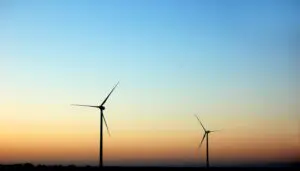Italian oil major Eni has made waves in the last few days by announcing an energy transition plan which aims to develop over 55GW of new renewable energy capacity by 2050. However, unlike peers like BP and Repsol, Eni has no plans to move towards net-zero emissions and actually plans to increase oil production over the next five years.
The bad news first: In its recently published Long-Term Strategic Plan to 2050 and Action Plan 2020-2023, Eni expects to increase upstream oil production by an annual rate of 3.5% through to 2025 – at which point it expects production to “plateau followed by a flexible decreasing trend” in oil production. The company therefore expects natural gas production to reach a 60% share by 2030 and around 85% in 2050.
Eni also confirmed CO2 emissions reduction targets of 80% of absolute emissions by 2050 and 55% reduction in emissions intensity.
“We have quantified our carbon footprint reduction targets giving ourselves a comprehensive method of calculating emissions, which includes both direct and 2 indirect emissions deriving from the end use of our products, whether from our own production or purchased from third parties,” said Claudio Descalzi, CEO of Eni.
“Consequently, our targets for reducing our absolute GHG emissions cannot be compared with other methodologies given the wider scope of emissions considered in our method. We have fixed a target of an 80% reduction in net GHG emissions of our energy products by 2050, which exceeds the 70% indicated by the IEA in their SDS scenario which aims to be compatible with the Paris Agreement.”
Despite this, Descalzi claimed that “The Eni of the future will … be even more sustainable” and “will reinforce its role as a global player in the world of energy with renewables and circular economy activities.”
And to back this up, the company has set a target of growing its renewables capacity to over 55GW by 2050. New renewable development will be focused primarily in OECD countries where Eni is already supplying clients with electricity and where it expects retail customers to grow to over 20 million by 2050.
Further, Eni is looking to transition its gas production sustainable with efforts in forest conservation as well as carbon capture and storage projects which will store as much as 40 million tonnes per year by 2050.
“We have designed a strategy that combines economic sustainability with environmental sustainability, and we have done so by defining an action plan based on technologies – existing or developed in-house – that we know how to implement,” said Descalzi.
“This will allow Eni to be a leader in the market supplying decarbonised energy products and actively contributing to the energy transition process.”










